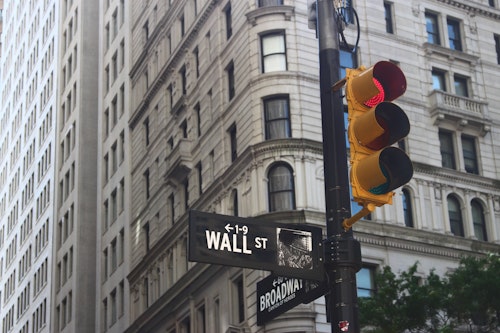Five Reasons Wall Street Reform Must Be Saved

The 2008 financial crisis destroyed 8.7 million American jobs, wiped out $2.8 trillion in retirement savings, and led to the foreclosure of 15 million homes. Congress passed Dodd-Frank to ensure a crisis of that magnitude never happens again. Yet President Trump has taken the first concrete step toward his campaign promise of “dismantling” Wall Street reform by directing his administration to find ways to weaken the law. This action is precisely why Third Way warned during the campaign to take Trump at his word. It is now more important than ever to defend this vital law. Here are five of the top reasons:
-
Erasing bank capital rules would cost our economy $351 billion.
The largest banks must now avoid dangerously high levels of borrowing because of Dodd-Frank capital and liquidity requirements. According to our cost-benefit analysis, these requirements contribute 1.62% to GDP. While these rules are recommended by an international agreement, they would not be implemented without Section 171 of Dodd-Frank. -
Thanks to stress tests, our largest banks are now fireproof.
U.S. banks don’t have to be the spark to a crisis, but they can add fuel to the fire. What if there’s a housing crash in China or an energy crisis in the Middle East? Our largest banks need to withstand the heat. That’s why Dodd-Frank created stress tests—an annual crisis simulation for large, interconnected banks. In 2014, five large banks failed. In 2016, only one did. -
The Volcker Rule keeps banks from gambling with your deposits.
Our economy couldn’t function without investors taking on risks in the stock market. But the financial crisis showed that when banks get in that game, they can cripple the system. The Volcker Rule says banks should be banks. It prevents banks with government-insured deposits from making risky stock bets for their own profit. Getting banks to lend more on Main Street is a worthy goal; a free pass for risky stock trading is entirely unrelated. -
Orderly Liquidation Authority ended “too big to fail.”
Imagine performing emergency heart surgery and finding midway that the patient needs a liver transplant too—while multiple other traumas wait for care. That’s what bank regulators faced when multiple large, interconnected banks suddenly went under during the financial crisis. With Title II of Dodd-Frank, banks now file annual health checkups with a living will so that regulators know exactly what to do should the worst happen. Yet this vital reform could be killed by Republicans in the budget reconciliation process. -
Dodd-Frank created the only federal agency 100% focused on protecting consumers: the CFPB.
We have agencies dedicated to ensuring that the food we eat and everyday consumer products we use are safe—so it only makes sense that we have an agency to make sure that financial products are safe, too. Since the Consumer Financial Protection Bureau (CFPB) was created, it has benefited 27 million Americans. Most notably, the CFPB has transformed the mortgage industry with “Know Before You Owe” rules that benefit borrowers, lenders, and investors alike.
Dodd-Frank is the most important financial reform law since the Great Depression. As former Congressman Barney Frank said on the fifth anniversary of his namesake law’s signing, “If you’re going to re-litigate every policy decision that’s ever made when the majority changes, you’ll have a very unstable situation.” Re-litigating the need for Dodd-Frank is a danger our economy simply cannot afford.

